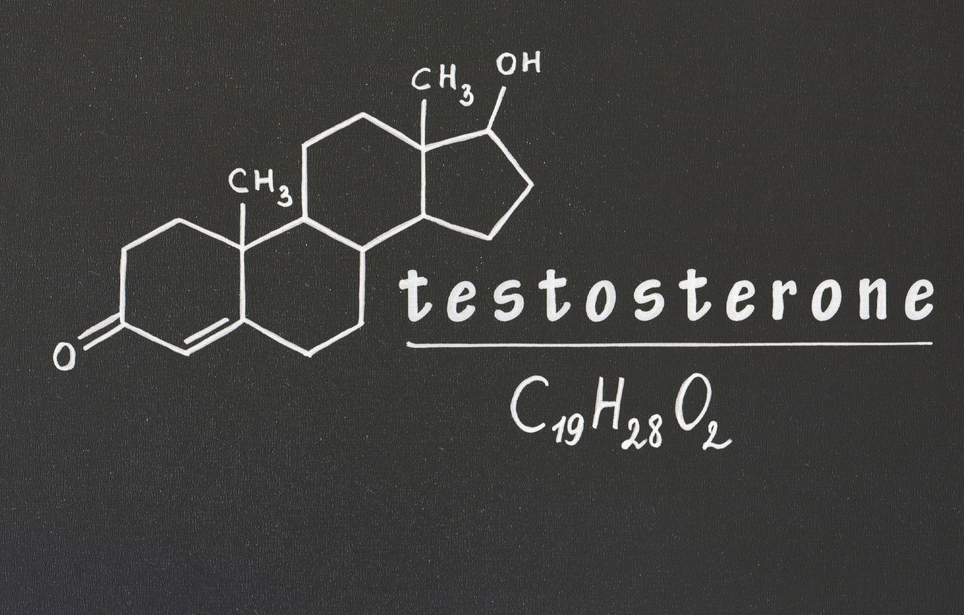Men with low levels of the male sex hormone testosterone need not fear that testosterone replacement therapy will increase their risk of prostate cancer.

This is the finding of an analysis of more than a quarter-million medical records of mostly white men in Sweden, research led by investigators at NYU Langone Medical Center and its Laura and Isaac Perlmutter Cancer Center. The international team of study authors will present these results on May 9 at the annual meeting of the American Urological Association in San Diego, Calif.
In the study, researchers found that, as a group, men prescribed testosterone for longer than a year had no overall increase in risk of prostate cancer and, in fact, had their risk of aggressive disease reduced by 50 percent.
“Based on our findings, physicians should still be watching for prostate cancer risk factors — such as being over the age of 40, having African-American ancestry, or having a family history of the disease — in men taking testosterone therapy, but should not hesitate to prescribe it to appropriate patients for fear of increasing prostate cancer risk,” says lead study investigator and NYU Langone urologist Stacy Loeb, MD, MSc.
Loeb points out that much of the concern over cancer risk is that, as part of standard therapy for advanced prostate cancer, tumor growth is decreased by drugs that drastically reduce rather than increase male hormones. “But when used appropriately by men with age-related low testosterone who are otherwise healthy, testosterone replacement has been shown to improve sexual function and mood.”
The researchers say use of testosterone therapy — taken by mouth, gel patch, or injection to treat “low T” — has skyrocketed in the past decade. Its popularity is a consequence, experts say, of an aging “boomer” population and heavy drug industry marketing, and has come about despite its unknown, long-term health risks. According to some surveys, use of testosterone therapy has more than tripled since 2001, with more than 2 percent of American men in their 40s and nearly 4 percent of men in their 60s taking it. Testosterone levels drop naturally by about 1 percent per year in men past their 30s.
Specifically, the current study found that 38,570 of the men whose records were examined developed prostate cancer between 2009 and 2012. Of these men, 284 had prescriptions for testosterone replacement therapy before they were diagnosed with prostate cancer. Their records were compared with 192,838 men who did not develop prostate cancer, of whom 1,378 had used testosterone therapy.
Researchers noted that while their initial analysis showed an uptick (of 35 percent) in prostate cancer in men shortly after starting therapy, the increase was only in prostate cancers that were at low risk of spreading and was likely a result from more doctor visits and biopsies performed early on. The authors stressed that the long-term reduction in aggressive disease was observed only in men after more than a year of testosterone use, and the risk of prostate cancer did not differ between gels and other types of preparations.
“Overall, our study suggests that what is best for men’s health is to keep testosterone levels balanced and within a normal range,” says Loeb, who suggests that men with testosterone levels below 350 nanograms per deciliter and symptoms should seek medical advice about whether they should consider testosterone therapy.
For the study, researchers matched and analyzed data from the National Prostate Cancer Register and the Prescribed Drug Register in Sweden. The country is one of the few in the world that collects detailed information on cancer and medication prescriptions for its entire population, and for which no comparable North American data source exists.
Loeb says the team next plans further studies to determine why low testosterone levels might trigger aggressive prostate cancer and why maintaining normal levels may protect against aggressive disease.
###
Funding support for the study, which took two years to complete, was provided by grants from the Swedish Research Council (825-2012-5047), and the Swedish Cancer Society (130428). Additional funding support was provided by the Laura and Isaac Perlmutter Cancer Center and the Louis Feil Charitable Lead Trust.
Besides Loeb, another NYU Langone investigator involved in the study was urologist Joseph Alukal, MD. Other study investigators were Yasin Folkvaljon, BSc, at the Regional Cancer Center at Uppsala University in Uppsala, Sweden; Jan-Erik Damber, MD, PhD, at the University of Gothenburg in Gothenburg, Sweden; Mats Lambe, MD, PhD, at the Karolinska Institute in Stockholm, Sweden; and principal investigator Pär Stattin, MD, PhD, at both Uppsala University and Umea University in Umea, Sweden.
Media Inquiries:
David March
Phone: 212-404-3528
[email protected]
Media Contact
David March
[email protected]
212-404-3528
@NYULMC
http://nyulangone.org/
The post Study suggests testosterone therapy does not raise risk of aggressive prostate cancer appeared first on Scienmag.





